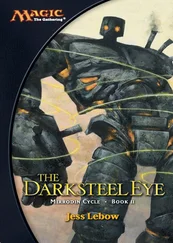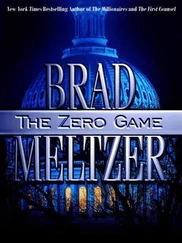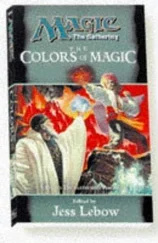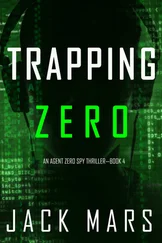Remy wanted badly to agree with her, but he had no idea what she was talking about. His eyes burned, the flecks rising like ash from a fire. “April… I’m losing track of everything,” he whispered.
She patted his stomach. “I know.”
“It’s getting worse.”
“I know. You told me.”
“Oh,” he said. “Good.” At least someone knew. He reached out and felt the warmth of her back. “Good.”
“Maybe we’re all like people in dreams now,” she said, “aware that something isn’t right, but unable to shake the illusion. And maybe we could save each other, but we just drift pass, bending each other, moving through our own dreams like loosed worries.”
Remy reached out and stroked-
THE MAN was in his fifties, tall, thin, and aristocratic, with an expensive haircut and braces on his teeth. He wore a golf shirt and khaki pants, the way a man does when he’s trying too hard to be casual.
“Well?” the man asked. He was sitting across from Remy. They were at a table in a Starbucks. Remy could hear the steaming of milk behind them.
“Dave? Double caramel macchiato for Dave?” said the barista. Apparently this man’s name was Dave because he stood and got his drink. He took a sip as he returned to the table. “Macchiato means mark. They’re just supposed to mark the latte with espresso. They never do it right.” Foam coated the man’s braces. He put his hands out, as if he’d been waiting for Remy to say something. “So?”
“So,” Remy said.
“What do you want?”
“What do you want?”
Dave cocked his head and looked like an expectant professor who’s just called on a sleeping student. “What… can I do for you, Remy?”
“I guess that depends,” Remy said, “on what you can do for me.”
Dave looked both confused and intrigued. “I guess,” he said, “what I can do for you… depends on what you have to offer.”
“And what if I don’t have anything to offer?”
His face reddened. “Then you’re a complete idiot, because you’re the one who called this meeting.”
Remy was afraid of that. He took a drink of the latte in front of him. Cinnamon. “Okay.” Remy looked around for his notebook. “Maybe you could start by telling me what you know about March Selios.”
“What I know?” The man laughed through his nose and then his eyes narrowed again, became formidable, and it occurred to Remy that this might not be one of his standard interviews. “You really are something, Remy. You want me to tell you what I know about March Selios? Okay. I’ll tell you. I know that I requested any documents that related to this Selios woman, and I know your sleazeball handlers over at the DD saw this as an opportunity to fuck us. So, instead of cooperating with the agency – with a real intelligence gathering organization – they rejected our request and decided to launch their own investigation. And I know that since they’re all just a bunch of paper pushers, they had to bring in a mercenary – you – to do the actual work.”
Remy took another sip of foamy cinnamon as the thin man in braces continued talking.
“I know that they’re using this investigation to justify their outrageous encroachment on agency turf. And I know they’re hanging it all on the notion that this – what, some trampy import paralegal – might still be alive, which is laughable.”
“Is it?” Remy asked, more suspiciously than he intended.
Dave’s eyes narrowed. “Isn’t it?”
“I don’t know,” Remy said.
Dave stared at him. “What do you know, Remy? Do you know something?”
“Probably not.”
Dave cocked his head again. “What are you offering, Remy?”
“What makes you think I’m offering something?”
The man sat back in his chair and stroked his solid chin. Remy thought he must have had a beard at one time, because he ran his fingers over his face like a man with a beard.
Finally, Dave smiled. “You’d better not be messing with me, Remy.”
“I’m not,” Remy assured him.
Dave looked around. “Okay, so you and I stay in touch, outside the official channels? Show a little… professional courtesy? Is that what you’re saying?”
“I don’t know what I’m saying.”
The man considered Remy again. Finally, he took another drink of his latte. “Okay. I’m going to give you a little bit of rope. But if you amateurs get in our way on this investigation, I will hang you.” He stood up and grabbed his drink. “Do we understand each other?”
Remy took another drink. As the man walked away, he said, “Not so much.”
“GONE BUT…: A night of one-act, student-written and student-performed plays and monologues,” according to the playbill, which was photocopied on folded green paper and had a single firefighter’s helmet below the words. Remy arrived late, and sat by himself in a corner foldout seat in the back row, watching the streaks in his eyes swarm over the low stage lights. He could see Carla and Steve down near the front, Steve’s arm around her shoulder. A woman bent and said something to Carla, who nodded and covered her mouth proudly.
The curtain came up with a jerk and the grind of ropes on pulleys and then the stage was bare except for a single light shining on a standup microphone. The first student was a mousy girl in dark jeans who shifted her weight every few seconds and delivered a monologue in which she described being at school that day, having her mother come get her, watching the whole thing on television, and then hearing, later that night, that her uncle hadn’t come home from work and was presumed dead. She liked her uncle, although he was really a step-uncle. She explained that he was a bond trader and that he was gay, and that he was the only gay person in her family and that she thought he was the coolest person in the family. She finished by describing a meal that her step-uncle had cooked for the family once, pasta with shiitake mushrooms and sun-dried tomatoes. She vowed that every year on that date, she would eat pasta with shiitake mushrooms and sun-dried tomatoes. The last words of her monologue were, “And the thing is: I hate mushrooms.”
The applause was rich and full, and then two thin white boys came out and performed a rap tribute to a dead firefighter who had graduated from the school ten years earlier (“…y’all seen it on television/them boys packin’ some heroism…”)
And then it was Edgar’s turn. There was a thunderous applause that caught Remy off guard, people sitting up in their seats. The woman next to Remy whispered to her husband, “His father,” and he nodded sadly. And then Remy’s son came out in tousled black hair, in an untucked white dress shirt, apparently having given up the armband. He looked good, if a little thin, but it was odd seeing him down there, in that harsh light. He seemed both smaller and older, and so far away. He sat at a small table on the left side of the stage, where he set up the chessboard and pieces that Remy had bought him when he was a kid. He walked over to the stand, removed the microphone, and returned to the chess table. He was quiet for a long moment, staring at that chessboard.
“My dad taught me to play,” Edgar said, and he moved a pawn out. Remy felt a chill, seeing him at the table, playing chess alone. “My dad showed me how all the pieces moved.” Edgar moved his knight out to protect the pawn, even though he was playing by himself. “I had trouble with the knight at first. I used to ask, ‘Is it two up and one over or one up and two over?’
“‘It doesn’t matter,’ my dad said. ‘You end up at the same place.’” There was a low murmur of laughter. Edgar spoke his father’s parts in a mock deep voice, and between each line of dialogue he pretended to wait for his opponent to move, then hunched over the board again. But no pieces ever moved on the father’s side of the board. “You end up in the same place,” Edgar repeated.
Читать дальше












